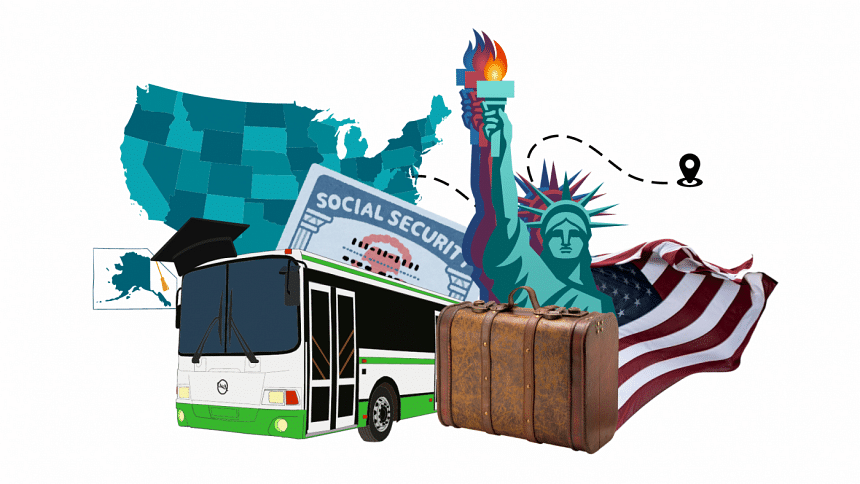A to-do list for when you get to America as a student

From the second you exit the plane, you're probably teeming with excitement. The new country is your oyster and nothing but good things wait. All of that is true but there are things that need to get done and this time, you're probably all on your own. So, without delay, here are the things you ought to get started on when you land in the States:
Get your Social Security number
If you want to work as a student and have a convenient way to access your bank, you'll need a Social Security number. So, what exactly is a Social Security number? It's a nine-digit number from the government that you'll need for employment and will act as your employee identification. If you're lucky, your university will guide you through this process. If not, you're on your own. However, you'll need to check in with the international student affairs office at your university to get the necessary forms.
After you've filled those out and gathered the necessary documents (usually your passport and I-20), you'll have to go down to the Social Security Administration office. Once you're there, you get a token at the entrance and you wait for your number to be called. You then hand in your papers to an official who verifies everything and luckily, you won't have to come back again. If things go smoothly, you're done! Your Social Security number should be in within two weeks.
Set up your phone
Here, you have two options. Either buy a new phone with a plan that is convenient for you or try to use your existing phone with an American number. The first option, while it may be on the pricier side, is more convenient if you ask me. I recommend T-Mobile because it is useful, starting from its unlimited data plans to free international calls and much more. You also have to check if your phone has a country lock and if you can use a SIM card because America is gradually moving on to using e-sims. So, consider your options and budget and make the purchase that makes sense for you.
Create your bank account
Every university town has a go-to bank. Check with the student affairs office or your fellow classmates to see which bank they use. Now, you will have to make an appointment to see someone who'll help you set up your account. So, call beforehand and set a time. This process usually doesn't take too long since the bank is accustomed to working with international students. You'll likely need your passport and student ID card. Be sure to collect your account number and international routing number. Your card should take about a week or two to be issued and you'll need some dollars one hand to deposit in your account. Check with your bank teller about the technicalities of using the card, setting up a PIN code, the online app, and who you can reach out to if you face any issues.
It's very likely there will be multiple facilities you won't be able to access until you have your Social Security number but nevertheless, it's best to get the process starters as soon as you can.
Check out transportation systems and routes
You might think that you'll be able to figure out the transportation on the day your classes start, but that will just leave room for mishaps. You want to have the route to your classes from your dorm or apartment figured out before classes actually start. Keep in mind, this isn't Bangladesh and transportations tends to be more routine. In some cases, your university might have a shuttle that makes various stops around the university campus. So, look into the schedules of both the shuttle and public buses. It may be helpful to try to get an estimate of the Uber and Lyft fees.
Try to ensure food security
Food insecurity is huge in many universities amongst the students. You can't always rely on takeout and it gets expensive really fast. Go through your university website and see what resources you have that combat food insecurity i.e open pantries, food drives, access to the cafeteria, and so on. Take the extra step and look outside your campus and see what neighbouring churches and community centres might offer free of cost.
Other than this list, some basic things you ought to do is locate your programme building, as well as security and police stations near you. You might even try to explore the campus and town when you're trying to figure out how to get classes, this gives you the opportunity to see other establishments around you which might come in handy. Overall, these few steps are a must to make your life as an international student a little easier.

 For all latest news, follow The Daily Star's Google News channel.
For all latest news, follow The Daily Star's Google News channel. 








Comments